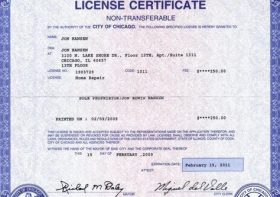Employment Law Compliance: Best Practices for Employers

Employment law compliance is essential for employers to ensure that they are meeting their legal obligations and creating a fair and safe working environment for their employees. Failure to comply with employment laws can result in legal penalties, fines, and damage to the company’s reputation. In this article, we will discuss the best practices that employers should follow to ensure compliance with employment laws.
1. Stay Updated and Informed
Employment laws can change frequently, and it is vital for employers to stay updated with the latest developments in labor regulations. This can be achieved by regularly consulting legal resources, attending seminars, and joining employer associations. Being informed about changes in employment law will help employers make necessary adjustments in their policies and practices to remain compliant.
2. Develop Clear and Comprehensive Policies
Employers should have well-documented policies that clearly outline the rules and expectations for the workplace. These policies should cover various aspects of employment, such as anti-discrimination, harassment prevention, compensation, benefits, sick leave, and disciplinary procedures. It is crucial to communicate these policies to all employees and provide them with written copies.
3. Train Employees and Managers
Regular training sessions should be conducted to educate employees and managers about their rights and responsibilities under employment laws. Training programs should cover topics like workplace safety, anti-discrimination laws, sexual harassment prevention, and proper handling of grievances. Training not only ensures compliance but also promotes a culture of awareness and respect within the organization.
4. Maintain Accurate Records
Employers must keep accurate and up-to-date records related to their employees. This includes records of hours worked, wages paid, leave taken, performance reviews, and disciplinary actions. Maintaining such records is not only a legal requirement in many jurisdictions but also helps in defending against potential lawsuits and audits by government agencies.
5. Consistently Enforce Policies
Employers must consistently enforce their policies and procedures without any bias or discrimination. This ensures that all employees are treated fairly and equally. Inconsistent enforcement of policies can lead to claims of discrimination, which can result in costly legal battles. Employers should also establish a system for employees to report policy violations or concerns confidentially.
6. Conduct Regular Audits
Employers should conduct periodic internal audits to assess their compliance with employment laws and identify any areas of concern. Audits can help uncover potential violations and allow employers to take corrective action before any legal issues arise. It is recommended to seek legal counsel or involve HR professionals in conducting these audits to ensure accuracy and thoroughness.
7. Promptly Address Complaints and Concerns
If an employee raises a complaint or expresses concerns related to employment laws, employers must promptly and seriously investigate the matter. It is essential to maintain confidentiality, protect the rights of the employee, and take appropriate action to address the issue. Failure to address complaints can lead to legal consequences and create a toxic work environment.
8. Seek Legal Guidance
Employment law can be complex, and it is advisable for employers to seek legal guidance when facing significant decisions or changes in policies. Consulting with an employment law attorney can help employers understand their legal obligations, mitigate risks, and navigate through any potential legal issues.
Conclusion
Compliance with employment laws is crucial for employers to ensure a fair and respectful workplace while mitigating legal risks. By staying informed, implementing clear policies, training employees, maintaining accurate records, and promptly addressing concerns, employers can effectively navigate the complex landscape of employment law compliance. Adhering to these best practices not only protects the rights of employees but also fosters a culture of fairness, trust, and productivity within the organization.


